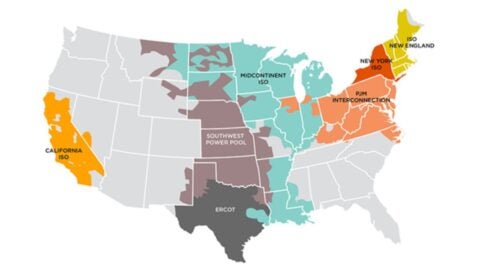Code for Killing Jobs
Claim
“‘Cap-and-trade’ is code for increasing taxes, killing American jobs and raising energy costs for consumers.”
– Rep. John Boehner (R-OH), House Minority Leader, March 9, 2009
Truth
Opponents of global warming action certainly have their sound bites down.
For style and efficiency, Rep. Boehner gets an A (in 17 words, he certainly makes his point). For truth-telling, he gets a big fat F.
As we’ve posted before, cap-and-trade is not a tax. It was designed explicitly to not be a tax — but rather a market-based policy that limits global warming pollution and creates economic incentives for businesses to meet or exceed those limits.
If cap-and-trade is “code” for anything, it’s unleashing green energy innovation and growing our economy.
On the jobs issue, evidence shows that capping America’s global warming pollution can be a big job creator, as we point out in our Less Carbon, More Jobs report.
A cap encourages innovation and puts people to work finding the energy solutions we’ll need in a carbon constrained world. From the laboratories of innovation to the markets of entrepreneurship to the factories of manufacturing, a cap on carbon will be the starting gun to unleash a new green energy revolution (see Why a Cap on Carbon? for more details).
As for raising energy costs, that’s not necessarily so. As we’ve pointed out in our response to FreedomWorks’ Bogus 10 claims about climate action, an analysis of the Lieberman-Warner S. 2191 legislation by the Department of Energy’s Energy Information Agency (EIA) projects electricity prices in the year 2020 to be 3% higher than business-as-usual. But the EIA analysis also expects electricity consumption to be almost 4% lower than it would otherwise be.
The net effect is a projected decrease of 0.7%- about $0.7-in monthly electricity bills in that year.
Rep. Boehner’s sound bite is an efficiently delivered line. He gets high marks for style, but gets it all wrong on substance.













One Comment
In general we humans use energy to eliminate labor. This is the fundamental reason that reducing energy usage will increase employment. This draws attention to the direction that most research and development has taken us – eliminating labor when there is not enough work increases competition for remaining jobs, driving down wages, while increasing the relative value of capital.
Now that jobs and energy are scarce, and energy and resources expensive, while pollution and unemployment are rampant, we can develop less energy-intensive and resource-intensive methods of production, while also reducing unemployment, by responding to the financial incentives present via research and development funding and tax breaks. We can allow and encourage a return to sustainability. Guiding science and development is the key here.
In many cases existing abandoned techniques will better meet current price regimes – When you are going away from your goal, reversing direction makes sense.
Let’s hope that we can understand what to do.